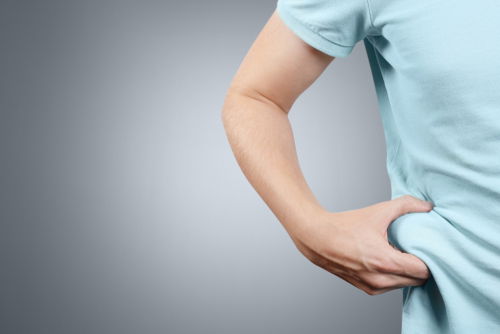Where Do Love Handles Go When You Lose Weight

Although obesity rates are soaring, there are surprisingly few overweight dieters who understand the metabolic process required to lose weight. The lungs are the primary excretory organ for weight loss with excess water excreted as urine, tears, sweat, breath, or feces. When you consume carbohydrates and fats, digestion converts the majority of either into carbon dioxide or water. A small portion of protein is excreted as urine, but only undigested food and dietary fiber is passed through the colon. Stored body fat is broken down through complex processes within cells and released as carbon dioxide and water through breathing, sweating, and urinating. Stimulated by insulin, fatty acids are made into fat molecules and stored as fat droplets. When given a choice, a fat cell will convert fat rather than carbohydrates because fat is much easier to process and store.
Types of Dietary Fats: Good or Bad
Dietary fat is a source of energy that aids nutrient absorption and brain function. Some unsaturated fatty acids are considered essential nutrients because your body cannot make them. Listed below are the most common types of dietary fats to be avoided or included in your personalized menu plan:
- Saturated Fat - Most dietary experts recommend eating saturated fats, like fatty cuts of meat, high-fat dairy foods and tropical oils, in moderation. Saturated fats are guilty of the unhealthy side effects that all fats have been blamed for.
- Monounsaturated Fat - Monounsaturated fats are healthy dietary fats found in avocados, almonds, peanuts, and cooking oils made from plants, such as canola, olive, soybean, sesame or sunflower seeds.
- Unsaturated Fat - Unsaturated fats are liquid at room temperature and come in two distinct forms: polyunsaturated and monounsaturated. Foods containing unsaturated fats include avocado, nuts, soybeans, and olives. Meat products contain both saturated and unsaturated fats.
- Polyunsaturated Fat - Found in plant and animal foods, such as salmon, vegetable oils and some nuts or seeds, polyunsaturated fat may reduce your risk of heart disease.
- Partially Hydrogenated Fat - According to the Food and Drug Administration, partially hydrogenated oils (trans fats) are no longer generally recognized as safe. Trans fat is considered the worst type of fat to consume as it can increase your risk of heart disease.
It is important to remember that all fats, including healthy fats, are high in calories, so watching your fat intake is a smart strategy for losing weight. But, your body needs some healthy fats to function normally.
The Debate For The Best Diet
There is a longstanding debate about the best weight to lose weight, so before you rush to any conclusions, accept the fact that long-term weight loss success requires a personalized approach for sustainable results. All the fuss over low-carb diets versus low-fat diets is completely irrelevant if neither menu plan will work for you. Although there are some differences in how the diets deliver a metabolic advantage, controlling food cravings and keeping hunger pangs at bay are critical for long-term weight loss success. The low-carb school of weight loss is based on the idea that refined carbohydrates like baked goods are quickly converted into sugar, which can lead to energy highs followed by energy lows that causes the body to release of hunger hormones. Some specialists believe consuming a high-carbohydrate diet that is low in fat may actually provide a more beneficial way of burning excess fat but many studies found that low-carb and low fat dieters lost the most weight by changing their relationship to food.
By submitting this form, you agree to receive marketing text messages from us at the number provided, including messages sent by autodialer. Consent is not a condition of any purchase. Message and data rates may apply. Message frequency varies. Reply HELP for help or STOP to cancel. View our Privacy Policy and Terms of Service.

